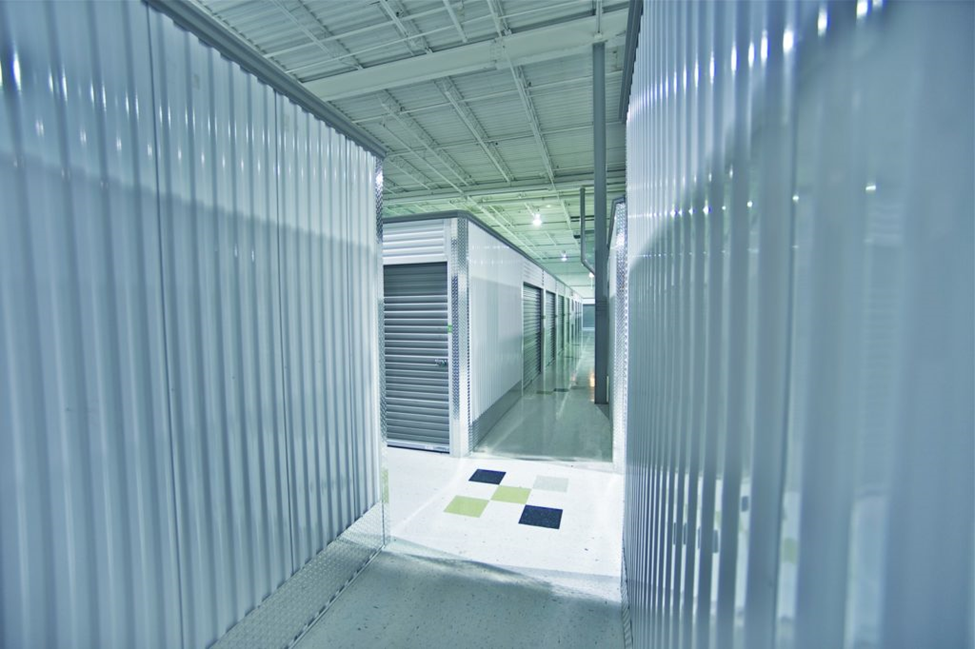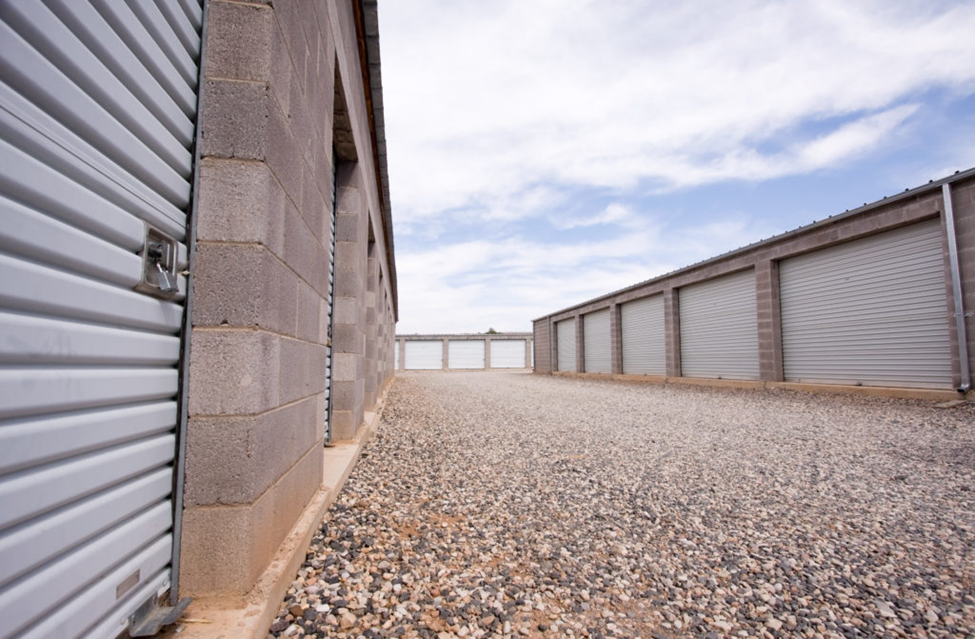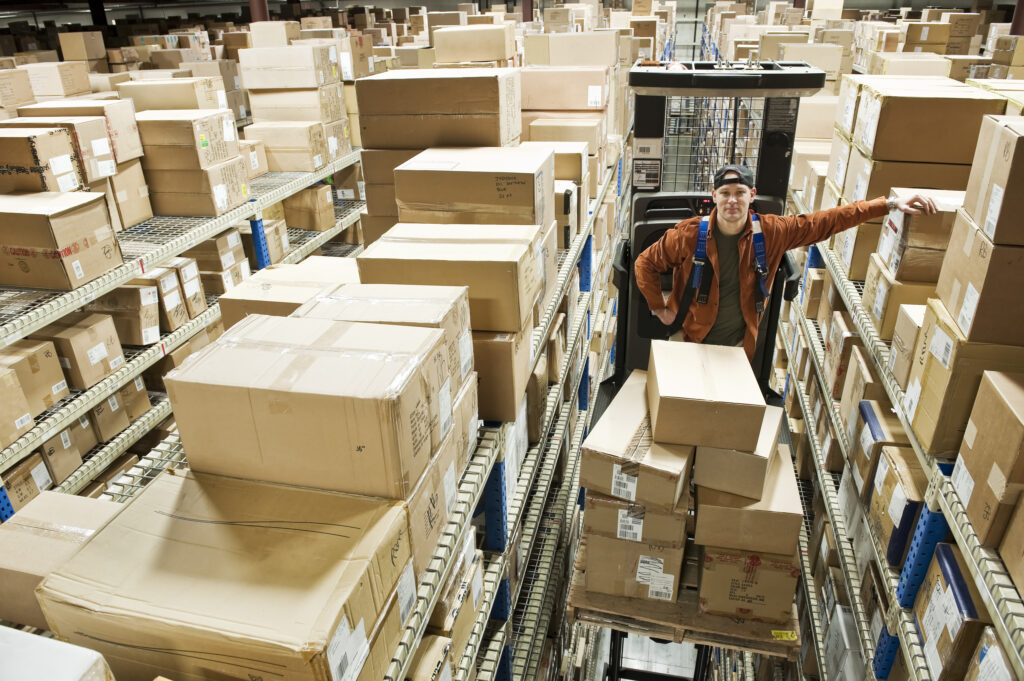Customers might be few and far between when you start a new business. You will need to plan to store inventory until you get enough sales to justify buying ample storage space.
But how do you decide where to put your inventory as a new business owner? Do you throw everything in a closet somewhere? Do you buy a warehouse and rent it out? How about a decently sized, budget-friendly storage unit?
There are many factors to consider before deciding where to store your inventory. In this article, we’ll go over 5 different short-term storage solutions that will help you scale your business without breaking the

Short-term storage allows you to start small and grow into larger projects.
While starting out, you may not be able to afford a large warehouse full of products. Instead, consider short-term storage, where you store only enough to meet immediate needs. This solution gives you flexibility when growing your business, as you won’t need to invest in additional space until you reach a certain level of sales.
Short-term storage is perfect for growing businesses. It gives them the flexibility to start small and expand later. This means you can begin with only a few items and add more over time.
Once you’re ready to expand, you can move your short-term to long-term storage. Long-term storage lets you save money over time because you pay only for used space, not unused space. So when you need extra space, you can add more units to your account.
Short-term storage allows you to get started quickly without investing large amounts of money.
On starting your own business, one of the first questions is where best to invest your precious cash.
The answer is simple – invest it in short-term storage. This storage option lets you store items for a limited time, usually between 1 week and 6 months. A few days of storage can mean many profits for your growing business.
This investment means you can start your business without spending thousands of dollars upfront. Instead, you can use short-term storage to save up for inventory, equipment, furniture, and office supplies.
By renting out short-term storage, you can start your business quickly without having to sink tons of cash into inventory. With this logistics solution, you won’t be stuck with expensive items hanging over your head until you decide whether or not to keep them.
The problem is that most businesses eventually need long-term storage. They need space for inventory, equipment, and supplies. So when you’re just starting, you may be unable to afford the long-term costs of storing these items.
That’s where short-term storage comes in handy. Instead of buying expensive warehouse space, you can rent a small area at a local self-storage facility. This gives you access to some storage for short periods, ensuring a degree of supply chain resilience.
Because short-term storage is rented rather than owned, there’s little to no risk involved. No matter what happens, you won’t lose anything. Take advantage of this opportunity whenever you feel ready.
Short-term storage gives you access to equipment that would otherwise cost thousands of dollars.
Short-term storage may be your most important tool to grow your business if you’re in its early stages.
Suppose you had hundreds of thousands of dollars worth of equipment sitting idle at your warehouse. In that case, you’d need to pay rent, utilities, and insurance, not to mention the cost of buying the equipment. But if you only needed the equipment for a week, you could lease it for a fraction of the price.
That’s where short-term storage comes in. It allows you to borrow equipment when you need it and return it when you no longer need it. You can save hundreds of dollars per month on equipment rental costs as a critical financial investment.
The same concept applies to office space. You’ve got a desk, chair, computer, printer, scanner, fax machine, copier, phone line, internet connection, and maybe even a coffee maker. What happens when you move offices? Do you throw away everything except your laptop? Or do you keep some things and donate others?
With short-term storage, you can take advantage of unused equipment, saving yourself thousands of dollars over the long term. And because you’re borrowing the equipment, you won’t incur additional costs associated with moving or storing it. Short-term storage can also act as emergency or latent storage for items.

Short-term storage gives you access to the equipment you could not afford if you had to buy it all at once.
Part of your primary business critical decisions is where to store your equipment when needed. Many options are available, including renting space in a warehouse, holding it in a friend’s garage, or keeping it in your basement.
However, there’s another option that’s often overlooked – short-term storage. This type of storage allows you to rent out space in a warehouse or self-storage facility and use it whenever you need it.
Short-term storage means saving money because you won’t have to pay for expensive equipment upfront. And since you only need to rent the space when you need it, you can avoid paying long-term fees.
If you were going to purchase a $10,000 mixer right now, would you rather spend $1,000 upfront or $100 per month over two years? When applying a good business model, the answer is obvious. Keep this in mind when considering short-term storage solutions for your business.
Short-term storage gives you access to the equipment you could not afford if you had to buy it all at once.
As a new business owner, you may not be ready to invest the time or money necessary to scale your business. Instead, you should use short-term storage to test out different ideas. This option allows you to try things out without committing to anything long-term.
This is especially useful when deciding whether to open a brick-and-mortar store, launch a product line, or offer services. You can test these options with short-term storage until you find the right fit. Short-term storage is part of any starting business with a sound financial plan.

When you need to test a new idea, consider investing some funds in short-term storage. Then, once you’ve tested out the picture, you can either return the funds to your bank account or spend them on whatever you want.
Short-term storage is an excellent option for small businesses that want to scale their operations without investing in expensive equipment. Using these services, you can keep your inventory stocked and available to customers. At the same time, you can plan for your warehouse space when it becomes viable.
Many types of short-term storage are available, with different pros and cons. Some storage providers offer free shipping, while others require a small fee. Some allow you to store items for a limited time, while others let you store items indefinitely.
Regardless of the type of short-term storage you decide to use, ensure you understand the terms and conditions before signing anything. Before committing to a contract, ensure you know what you agree to. Also, ask questions. Ask if hidden fees exist, what happens if items in storage exceed the limit, and whether you can cancel anytime.
While you might not be able to store everything you sell in a short-term facility, you can certainly stock up on items like office supplies, paper goods, and cleaning products. This means you won’t have to worry about whether or not you’ll have access to your inventory during a power outage or natural disaster.
Short-term storage facilities are significant business expenses. Still, they’re worth considering if you want to grow your business quickly. Reliable storage options will let you focus on potential customers more than the logistics of your business plan. With the right strategy in place, you can ensure that you never run out of product again!
Once you find a logistics company that offers short-term storage, sign a contract and begin storing your inventory and equipment. Then, watch your business grow!

